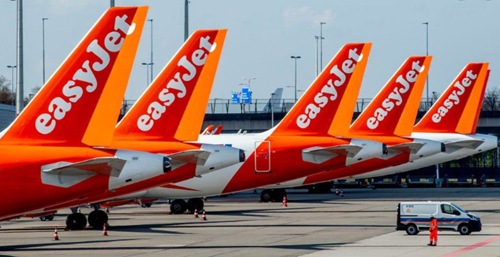

Weekly update - Stocks on sale
When there’s a sale at your local supermarket or department store, the common response is for customers to fill their trolleys with some discount bargains. So why do investors in financial markets behave so differently? Investors often avoid those companies whose shares have fallen significantly in price in favour of highly priced expensive goods that are perceived to be higher quality or have better future prospects, such as shiny gold, the irrepressible tech titans or those can’t do without healthcare stocks.
Whilst arguably there should be no place for emotion in investing, humans are emotional beasts and the past few months have been especially psychologically and emotionally challenging for almost everyone on the planet. Over and above the fear and panic brought about by the virus, collapsing financial markets and mass media hysteria, it is at times like these that many emotional biases come into investors decision making processes. Two types of bias may be prevalent at the moment:
Anchoring bias: as suggested in the opening paragraph this is where investors use first impressions to form perceptions without doing more detailed work, e.g. “the travel industry will be decimated by coronavirus and take a long time to return to normal so all travel businesses should be avoided.”
Trend-chasing bias: past performance is no indication of future returns yet investment inflows into the strongest performing asset classes such as corporate bonds, gold and technology stocks continue apace. Seemingly defensive consumer product or healthcare businesses have seen their prices rise to record earnings multiples despite many warning on profits or failing to give any future guidance, making these investments both more expensive and riskier than they have been in the past.
Price is what you pay, value is what you get
It is vitally important not to confuse price with value. The true value of most businesses is unlikely to fluctuate much on a day by day basis or even month by month basis and yet their share prices can fluctuate wildly over the same period. Share prices are driven by many, many things but often these will have limited or perhaps no direct bearing on the future worth and prospects of a single business. Clearly the most relevant is stock specific news but at times like these perhaps macroeconomic newsflow and the extremely unusual impact of enforced lockdowns will have a greater bearing on markets and in particular those cyclical shares more exposed to economic cycle. As a result, this could be where many future bargains await.
Financial markets and analysts have a tendency to extrapolate what is happening today into the future which then clouds rational long term investment decision making. Mean reversion happens both ways, underperforming businesses may attract new management or find ways to heal themselves whilst outperforming businesses may rest on their laurels or attract new competition. For example, will the outlook always be as positive as it is for Microsoft in today’s WFH world; or indeed as bad as it is for EasyJet whilst their planes are parked up on airport aprons? Microsoft alone is worth two thirds of the value of the entire FTSE-100 index of Britain’s leading companies despite being much less profitable, yes it’s outlook looks great but it will have to deliver to justify its high price. Meanwhile a lot of cyclical businesses in the FTSE-100 should enjoy a rapid recovery in profitability once this unusual phase passes. This is why it is important that investment portfolios are balanced and diversified to encompass both.
When looking for value, one needs to be conscious that items available at knockdown prices could be damaged goods or worse still obsolete and the same is true with investment. Bottom fishing can be fraught with danger. Just one heavily dilutive rights issue or expensive debt for equity swap can quickly destroy equity value.
Benjamin Graham may be the father of value investing but Warren Buffett would claim his is the “cigar butt approach”, where you pick one off the floor, take a quick puff and then need to move onto the next one. In investing, as in life, perhaps there is perhaps no greater achievement than buying high quality at low prices and this is where we should focus our efforts. Or as Warren Buffett would say “buying wonderful businesses at fair prices”. Of course wonderful businesses usually come at a high price but the likelihood of being able to find either some quality bargains or some longer cigar butts is often better during uncertain times like these. As we will see, fear, panic and mass liquidation can cause the baby to be thrown out with the bathwater.
There are many recent examples of equity mispricing which suggest the financial community is overly pessimistic about certain industries and is failing to accurately price either their current asset base or their future earnings potential. These situations may provide considerable opportunity to make outsize returns providing one has done their homework.
To name a few in recent weeks:
- UK midcap pub company Marstons recently announced a deal to sell the bulk of its brewing operations to Carlsberg in a deal worth £580m. Marstons equity value at the time was £200m. so it is safe to say the market was not fairly valuing this asset. Marstons shares doubled overnight.
- FTSE-100 BT (market cap £10bn) was rumoured to be considering realising its investment in UK broadband monopoly Openreach, a business said to be worth £20bn. The usually staid BT shares immediately jumped 10% on the news. Not exactly a hidden asset and one which should be as obvious a lockdown beneficiary as Microsoft and yet again one the market is giving insufficient credit for.
- 164-year-old prime London developer British Land has seen a chunk of its shares snapped up by one of the world’s largest property investors at a 57% discount to a potentially subdued Net Asset Value. Is the market suggesting that London will cease to be the centre of European commerce in the future? The Canadians clearly think otherwise.
Who could be next? Perhaps £2bn “Investment Grade” gas utility monopoly Centrica who are shortly to be evicted from the FTSE-100 with £20bn of assets and £1bn of underlying earnings. Or £2.7bn “Investment Grade” Easyjet (there aren’t many in airlines) who could be similarly evicted and at the latest count had around £5bn of aircraft and cash.

Investors will need to decide whether these are genuine bargains, cigar butts or wonderful businesses.


